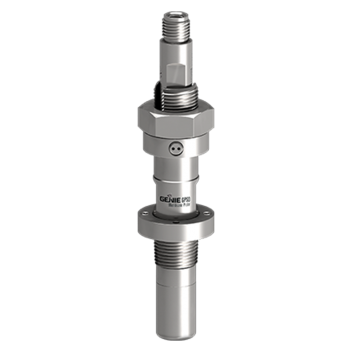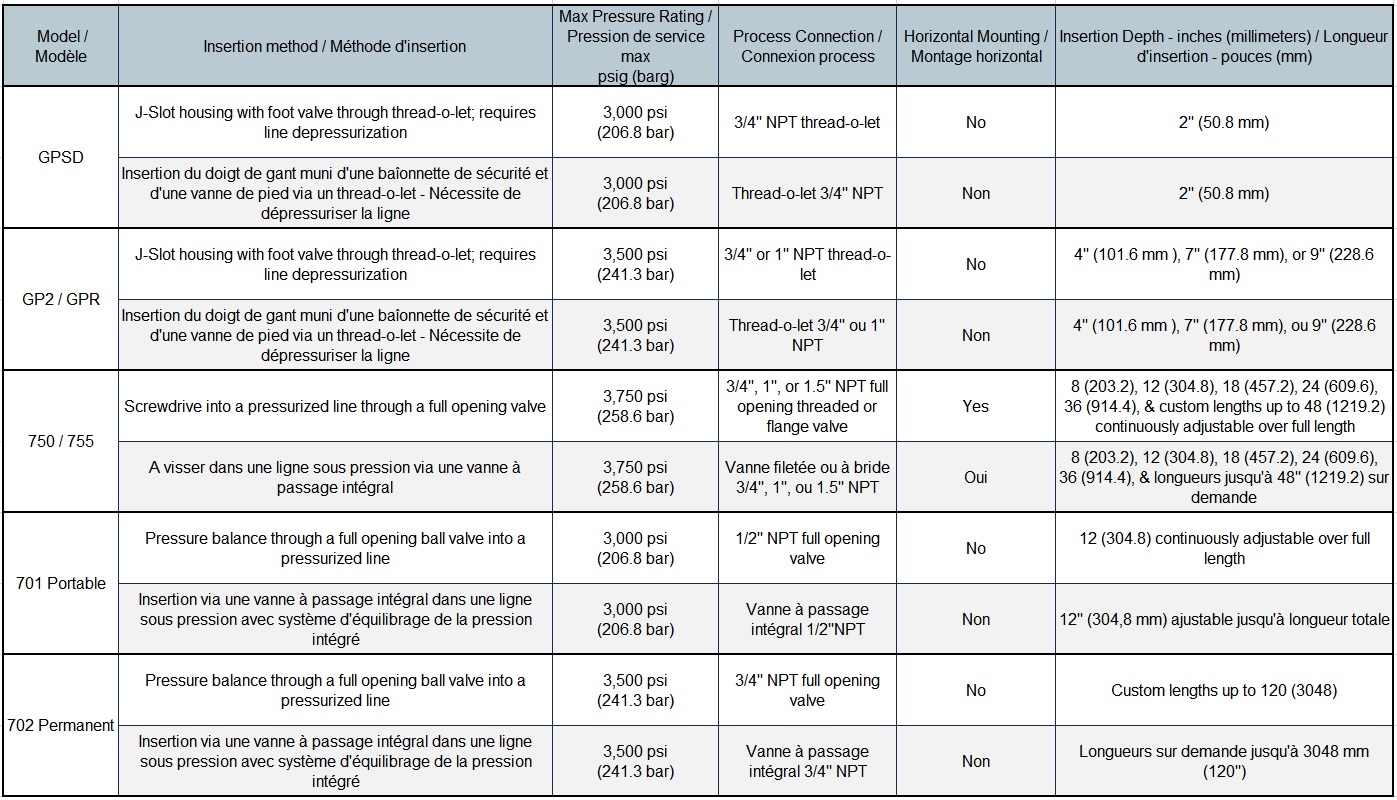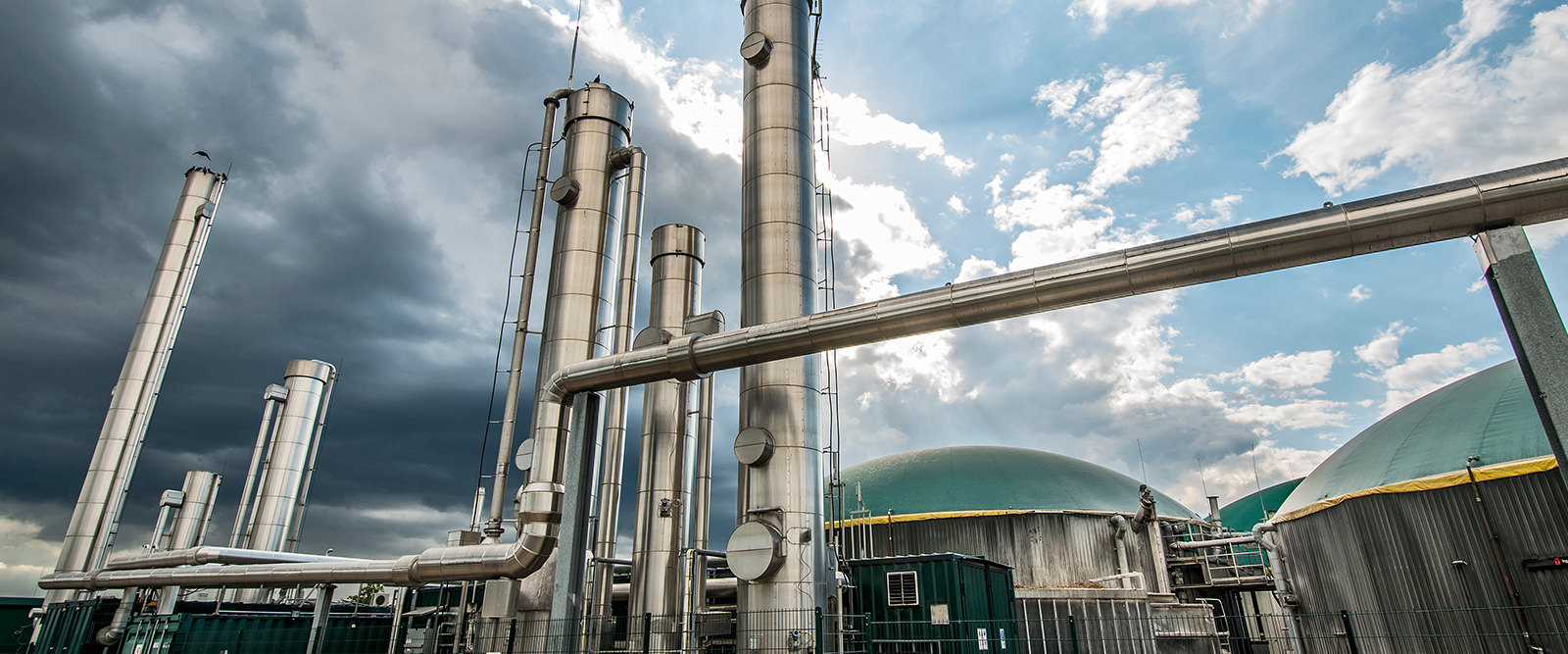- Out of stock


The GENIE GPSD model is a fixed, under pressure retractable probe designed for small-diameter pipes; it enables a representative gas sample to be taken, and protects the analyzer from liquids thanks to its membrane.
GENIE's range of sampling probes includes a dozen models.
Each model has different characteristics: with or without pressure regulation, process connection, operating pressure, insertion length, insertion method...
To quickly find the right probe for your application, consult the comparison chart below:

Download the comparison table for sampling probes:
TheEuropean Pressure Equipment Directive (PED) lays down the essential safety essential safety requirements for the putting into circulation of pressure equipment within the European Economic Area. The version currently in force is Directive 2014/68/EU of the European Parliament and of the Council of May 15, 2014 on the harmonization of the laws of the Member States concerning the making available on the market of pressure equipment. Its first version, Directive 97/23/EC of the European Parliament and of the Council of May 29, 1997 on the approximation of the laws of the Member States concerning pressure equipment, came into force on September 20, 1997.
The directive applies only to vessels with a maximum pressure PS of over 0.5 bar. It defines two groups of fluids (article 13):
- group 1: substances and mixtures considered hazardous - explosive, unstable, flammable, oxidizing, pyrophoric, self-reactive, toxic...
- group 2: other substances and mixtures.
Depending on the fluid group, the maximum allowable pressure PS - the pressure at which the safety device (valve) triggers - and the volume V, the equipment falls into a risk category, from lowest to highest.
GENIE sampling probes are subject to this Directive, as their maximum pressure exceeds 0.5 bar. They fall into fluid group 1.
Article 4 §3 specifies that " pressure equipment and assemblies whose characteristics are less than or equal to the limits referred to in paragraph 1(a), (b) and (c) and paragraph 2 respectively shall be designed and manufactured in accordance with the state of the art in use in a Member State in order to ensure their safe use. Pressure equipment and assemblies must be accompanied by adequate instructions for use." Pressure equipment with a low maximum allowable pressure, a small volume and/or a small nominal diameter therefore falls under the provisions of Article 4 § 3. Such pressure equipment does not have to comply with the essential safety requirements, but only with good engineering practice.
This is the case for sampling probes and other Geniefilters equipment, which have a small volume and a small nominal diameter.
Concerning CE marking, Article 4 §3 stipulates: "Without prejudice to other Union harmonization legislation providing for the affixing thereof, such equipment or assemblies shall not bear the CE marking referred to in Article 18."
This is why Genifilters sampling probes and other equipment, although subject to PED, are not CE marked. In this respect, you will find the certificate issued by A+ Corporation.
NB: sampling probes are considered to be pressurized accessories. Article 2 §5 defines pressure accessories as devices with an operational role whose casing is subject to pressure. This means that the device has an operational function other than resisting pressure. The pressure fitting can be attached to other pressure equipment by techniques such as bolting, brazing, soldering or welding. A pressure fitting has one or more operational functions, which may be, for example: measurement, expansion of the fluid being conveyed, sampling, removal of impurities or gases. A pressure fitting does not necessarily have removable parts. Typical examples of pressure accessories are: valves, pressure regulators, measuring chambers, pressure gauges, transparent level gauges, filters, expansion bellows, manifolds.
For further information, please consult Directive 2014/68/EU on the EUR-Lex website.
GENIE sampling probes are subject to the European Pressure Equipment Directive 2014/68/EU.
However, as their volume and nominal size are small, they do not have to meet essential safety requirements, but only good engineering practice. As a result, they do not carry the CE mark (article 4§3).
For more information, please refer to the question: Are the probes PED-compliant?
NB: The same rule applies to other geniefilters brand products (separators, filters, regulators), which do not carry the CE mark.
Aware that every company, however small, has an impact on the environment, SOCLEMA is committed to sustainable development.
Find out more